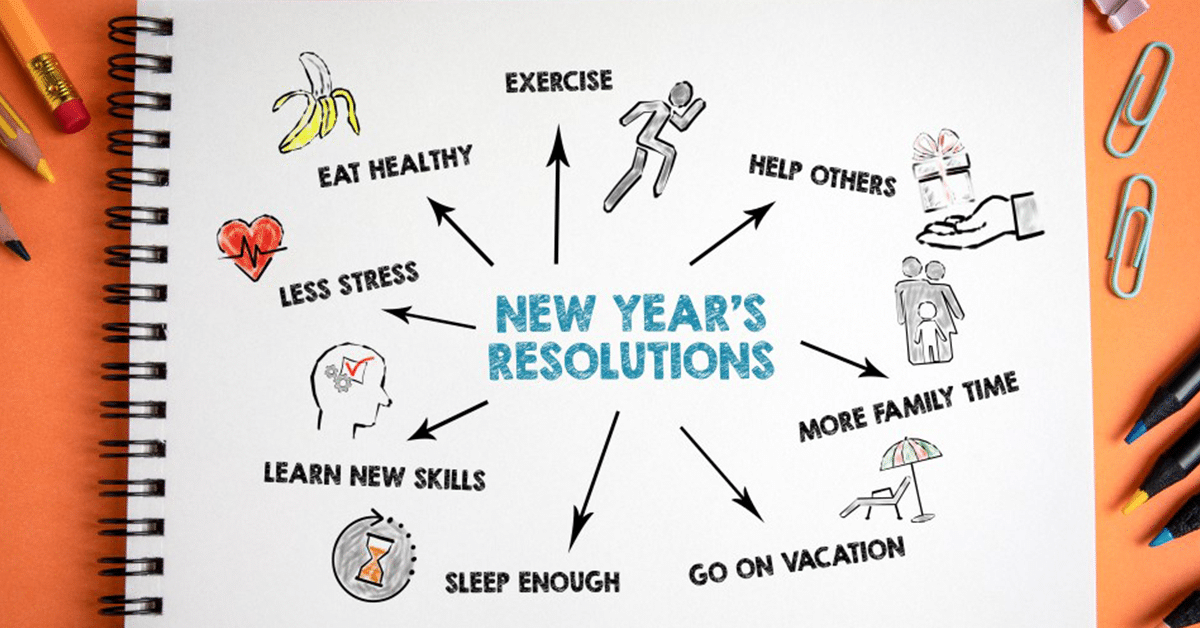New Year’s resolutions often come with high hopes and a desire for self-improvement. Even though the intent is positive, the process can have many downsides, especially for mental health. We all know there’s more to changing habits than making plans about it. The all-or-nothing thinking, not acknowledging the grieving of the loss of habits that are there for a reason, and the responses to our own failures can be detrimental to our mental health and can be major blocks when wanting to change something in our lives.
Here are some key ways they might negatively affect our well-being:
Unrealistic Expectations that Lead to Disappointment
Many resolutions are set with big ambitions—losing a large amount of weight, drastically changing habits, or achieving major milestones in a short time. When progress doesn’t come as quickly or smoothly as hoped, it can lead to feelings of failure, frustration, and decreased self-esteem.
Mental Health Impact: Constantly feeling like you’re not measuring up can fuel anxiety and depressive thoughts.
Pressure to Be Perfect
Resolutions can create a rigid mindset where there’s no room for flexibility. Missing a workout, slipping up on a diet, or not meeting a goal by a specific date may feel like a complete failure.
Mental Health Impact: This all-or-nothing thinking can lead to guilt, shame, and self-criticism, contributing to stress and burnout.
Short-Term Focus, Long-Term Neglect
Resolutions are often framed around quick fixes—30-day challenges or crash diets—that don’t promote sustainable change. Once February or March rolls around, people may revert to old habits, feeling like they’ve lost momentum.
Mental Health Impact: The cycle of starting strong and then ‘failing’ can hurt long-term confidence and increase the risk of giving up on future self-improvement efforts.
External Motivation Instead of Internal Reflection
Society pressures often influence resolutions—fitting into a particular body image, earning more money, or achieving status symbols. When external factors drive goals, they can feel disconnected from personal values and intrinsic motivation.
Mental Health Impact: Pursuing goals that don’t align with your authentic self can create inner conflict and dissatisfaction, reducing overall well-being.
Neglect of Mental Health Goals
While physical health goals like exercise or dieting are popular resolutions, mental health often gets sidelined. The focus on productivity and external results can crowd out the time and energy needed for self-care, rest, and emotional well-being.
Mental Health Impact: Neglecting mental health can lead to worsening symptoms of anxiety, depression, and emotional exhaustion.
Recommendations for a Healthier Mindset
Instead of rigid resolutions, try adopting these gentler approaches for growth:
- Set flexible rather than strict goals. Change is not linear, so allow room for back and forth until the time between becomes longer.
- Practice self-compassion by allowing room for mistakes and being kind to yourself when you don’t get it. Be curious about the part of you that couldn’t or didn’t want to do it.
- Create flexible habits that evolve with your changing needs and priorities.
- Celebrate small wins and progress rather than waiting for big milestones.
By rethinking the way we approach New Year’s resolutions, we can reduce unnecessary mental health burdens and cultivate a more compassionate, sustainable path to personal growth.
Keep Reading
Want more? Here are some other blog posts you might be interested in.








